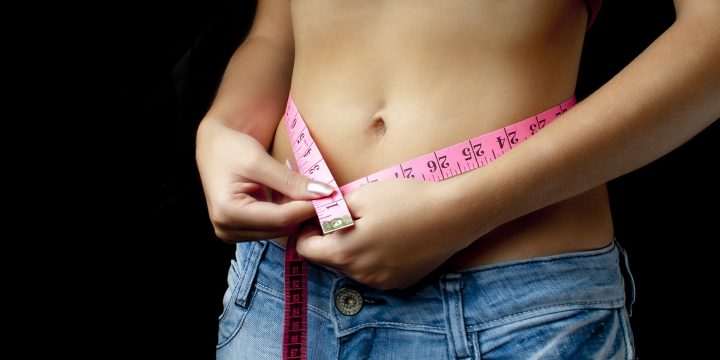
In the world of weight loss diets, intermittent fasting is my best bet.
To set things straight, intermittent fasting is in fact, a diet regimen and not just an eating pattern. To a dietitian, it’s weird if you tell me that you’re on intermittent fasting but not on a diet. In fact, everyone is on their own diet because “diet” is simply defined as a pattern of eating behaviors considering duration, quantity, frequency, and food groups eaten. So how you currently eat – regardless of goal – is called your “usual diet.”
To start, intermittent fasting simply puts you on schedule with specific intervals on when to eat and when to abstain from eating; although you are encouraged to always go for healthier options, the focus here is not on what you eat, but when you are allowed to eat.

Is intermittent fasting really a new thing?
There’s nothing new about it. Fasting is practiced by different religious groups, and has been prescribed by doctors and dietitians to manage disease conditions or take advantage of its benefits. In fact, it is so common for a regular person to naturally do intermittent fasting.
If you think about it, going to bed 4 hours after your last meal, sleeping for 8 hours and delaying your first meal of the day for another 4 hours – a late brunch – is already a 16-hour fast. And when does this usually happen? Just on every day off.
Do it every day and voila! You’re already on daily intermittent fasting.
In a nutshell, how does it work?
Normally, insulin is present for 3 to 5 hours in the bloodstream after you eat, allowing the body to absorb the food you just ate and blocking the use of energy stores. We rarely get to this low-insulin state because we usually feel hunger and eat 3-4 hours after our last meal, when this post-absorptive state only starts 8-12 hours after. This regimen works by prolonging periods of low insulin presence in the blood stream, allowing us to enter a fat-burning state.

How do I get started with intermittent fasting?
The intervals you choose will depend on a lot of things like your energy needs, your physical activity, your social life, your work schedule, and your health goal. For example, if you eat dinner with family, and eat breakfast by yourself, then you can skip breakfast and start your eating period later in the day so that it can cover your family’s dinner schedule.
Experimentation is key. What works for your friend might not work for you as different people can choose different intervals that might suit them:
1. Daily intermittent fasting. You do a 16-hour fast (including your sleeping hours) followed by an 8-hour eating period. Alternatively, a 14-hour fast with 10-hour eating period also works. It doesn’t matter what time you start your eating period. Do whatever works for you.
2. Weekly intermittent fasting. You fast for 24 hours once a week, for at least twice a month. You can do this by making lunch at 12:00pm your last meal today, and fasting until 12:00 pm tomorrow.
3. Alternate day intermittent fasting. You do a 24-hour fast followed by an 24-hour eating period. You can do this by setting a specific time, e.g. 8:00pm when you start and stop your intervals. This means more fasting because you still fast during sleep within your 24-hour eating period.
Intermittent fasting makes your day simpler because you’ll need to plan one less meal per day; but you need to make sure that the meals you eat are healthy, balanced, and adequate. Always remember that “breakfast” – the “meal/s that break your fast” and not necessarily taken in the morning or eaten right after waking – are especially important here. Since you don’t have the luxury of time, make sure that your meals are of high quality.
What are the challenges of intermittent fasting and how do I overcome these?
Just like any other special diet, intermittent fasting will not be applicable to everyone such as growing children, or adults who have altered physiological conditions such as during pregnancy and lactation, or disease. Any diet they undergo would pose additional challenges hence requiring medical supervision and management.
However, a normal, healthily functioning adult, can manage his own intermittent fasting, but not without one or all of these challenges:
1. Micronutrient deficiency. All diets that are used for weight loss work by helping you reduce the overall calories you consume in a day. If on your usual unrestricted diet, you don’t get enough and complete micronutrients, what more when on a diet with a smaller eating window?
Multiple micronutrient deficiencies are common with everyone, not just IF dieters, and this causes cravings because how else will your body tell you that you need to eat something? Either you let your impulses win on letting you binge on the wrong foods, or supplement deficiencies with highly bioavailable micronutrients.
2. Psychological barriers. Intermittent fasting has fairly simple instructions but tends to get complicated when mixed with social pressure, and our own overthinking. IF dieters often report the preoccupation with food or the time intervals, the natural urge to binge while on a fast, and the self-pity felt when seeing people enjoy their unrestricted diets. These are normal things and overfocusing on these just racks up your stress levels.
Take a chill pill, meditate, and here’s a new mantra for you: my mind can always demand more from my body. This is as true as when you convince your body to stay up for a Netflix marathon, to consume that extra slab of pork ribs at a buffet, or to finish the last leg of your training, so why not train a strong, decisive mind for this? Any brain fog and preoccupation is imminent when you start with intermittent fasting, but all goes away when your train your mind and body to cooperate.
3. Reduction on athletic performance. Feelings of low energy – sometimes resulting to overreliance on caffeine – becomes less common as your body gets used to functioning in a fasted state. But this can be a problem for people who undergo high intensity and explosive training. We’ve seen enough of people who would faint when working out without breakfast, so how do IF dieters work this out?
The easiest solution is for you to schedule your workout before or after your eating window, cause this automatically gives you a substantial pre- or post-workout meal; make sure to time your larger meals and workouts accordingly.
In addition, I recommend for you to still consume that “mainly carbs & some protein” pre- or post-workout snack be it yogurt, fruit, a nutrition bar, or a protein shake, even if it’s outside your eating window. Between you and me, if it’s not more than 200 calories, then it’s not cheating.
Final Words
Intermittent fasting is my best bet among weight loss regimens because as a dietitian, I prioritize lasting behavior change over any actual weight that you lose. Therefore, other weight loss diets that mandate you to eliminate entire food groups, or add specific food items that will never be in your usual diet and budget, do not fit the bill for me.
The IF diet is the simplest strategy for weight management as its effectivity requires little behavior change and teaches you the most basic thing: to abstain from excessive eating.
If you are starting or trying intermittent fasting or any diet regimens, feel free to send me a question. I would love to hear your fitness progress.







Amazing insight! Love it!!!
I have been on IF for almost 2 years already. I start eating as early as 7AM and stop after lunch around 1PM.
I was able to shed 15 lbs with an everyday workout. Also, I schedule my cheat meal to Friday night – which works for me.
I tried going off for a month because I notice that my body is slowly going on a plateau, and I have never felt heavier! I got used to fasting state – so when I wasn’t on IF, I still try to do it at least 12 hours before starting my meal again.
I was really skeptical to try out intermittent fasting but I think I would like to give it a try now. Thanks pinoyfitness! By the way another thing i’d like to know about intermittent fasting, what are the side effects after going back to the regular time of eating for example after I lose weight?